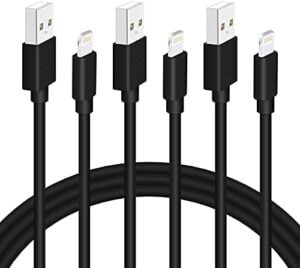
In the vast landscape of the internet, where information and solutions are just a click away, tools websites have become indispensable resources for users seeking efficiency and convenience. These platforms, offering a myriad of tools catering to various needs, not only serve as valuable assets for users but also present lucrative opportunities for entrepreneurs to earn money. In this article, we will delve into the strategies and methods to successfully monetize a tools website, ensuring a sustainable income stream.
Introduction
In a digital era where efficiency is paramount, tools websites have emerged as go-to platforms for individuals and businesses alike. From simple calculators to complex software solutions, these websites provide tools that streamline tasks and enhance productivity. What many entrepreneurs are now realizing is the potential to turn these ventures into profitable enterprises.
Understanding Tools Websites
Before diving into the monetization strategies, let’s grasp the essence of tools websites. These platforms encompass a wide range of applications, from online utilities to software-as-a-service (SaaS) offerings. Examples include project management tools, SEO analyzers, and graphic design software. Understanding the different types of tools available lays the foundation for a successful monetization journey.
The Power of Traffic
The key to monetizing any website, including tools websites, lies in generating substantial traffic. A high volume of visitors not only increases the visibility of the tools but also opens avenues for various monetization methods. Strategies such as search engine optimization (SEO), social media marketing, and content creation are instrumental in driving traffic to your tools website.
Monetization Methods
Affiliate Marketing
By referring people to products or services, you can promote them and get paid a commission for each sale that results from your referral. For a tools website, this means strategically integrating affiliate links to relevant tools and earning commissions on successful conversions. Selecting goods that meet your audience’s needs is crucial.
Ad Revenue
Displaying ads on your tools website is a classic method of monetization. By partnering with ad networks or directly with advertisers, you can earn revenue based on impressions or clicks. Optimizing ad placement and choosing advertisers relevant to your audience are crucial for maximizing ad revenue.
Sponsored Content
Sponsored content involves collaborating with businesses to create and publish content on your tools website. This content is usually promotional in nature and can include reviews, tutorials, or showcases of specific tools. As your website gains popularity, attracting sponsors becomes more viable, providing an additional income stream.
Creating and Selling Tools
For those with a knack for software development, creating and selling tools is a direct way to monetize a tools website. This approach requires a unique and valuable offering that solves a specific problem. Selling licenses, subscriptions, or one-time purchases can generate a steady income.
Building a Strong Online Presence
Monetization efforts are most effective when coupled with a strong online presence. Building a brand around your tools website enhances credibility and trust among users. Active engagement on social media, regular content updates, and responsive customer support contribute to a positive and lasting impression.
SEO Strategies for Tools Websites
In the vast online ecosystem, visibility is key. Implementing effective SEO strategies ensures that your tools website ranks higher in search engine results, driving organic traffic. This involves optimizing meta tags, creating quality content, and building backlinks. Consistent SEO efforts lead to sustained visibility and increased opportunities for monetization.
Diversifying Income Streams
While one monetization method can bring in revenue, diversifying income streams adds stability and resilience to your business. Relying solely on one method, such as ad revenue, can be risky. Exploring multiple avenues ensures a more balanced and sustainable income flow.
Case Studies
Examining successful tools websites can provide valuable insights into effective monetization strategies. Platforms like Canva, offering graphic design tools, and Moz, providing SEO analytics, have not only gained widespread popularity but have also implemented diverse and successful monetization approaches. Analyzing these case studies can inspire innovative ideas for your own tools website.
Challenges and Solutions
Monetizing a tools website comes with its set of challenges. Competition, changing market trends, and evolving user preferences can pose obstacles. However, staying adaptable and embracing challenges as opportunities for growth allows for the development of robust solutions. Regularly assessing and adjusting your monetization strategies ensures continued success.
Tips for Long-Term Success
Achieving long-term success in monetizing a tools website requires a commitment to sustainable practices. Prioritize user experience, stay informed about industry trends, and adapt your strategies accordingly. By staying attuned to your audience’s needs and consistently delivering value, your tools website can become a reliable and enduring source of income.
Conclusion
In the dynamic landscape of online entrepreneurship, tools websites stand out as versatile platforms with the potential for significant financial returns. By understanding the diverse monetization methods, building a robust online presence, and staying resilient in the face of challenges, entrepreneurs can turn their tools websites into thriving businesses. As you embark on this journey, remember that success in monetization is not just about making money but about delivering value to your audience.





